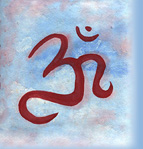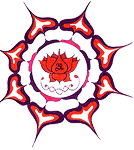
Holistic Gynecology: Honoring Women’s Wisdom
By Richard Clofine, D.O.
The experience of most women is that they do not like to go to the gynecologist. This is a near universal response. The reasons for this are not mysterious or hidden, in fact they seem quite clear. They do not look forward to their visits because their past experience has associated those visits with embarrassment and discomfort.
The visit involves the expectation of revealing deeply intimate things to another individual. It may be an individual the woman has never met, or that she does not personally resonate with. She is supposed to feel safe because the physician is part of an elite priesthood that allows them to hear confessions. Unfortunately, graduating medical school does not mean an individual knows how to honor another. These visits put all women in an extremely vulnerable situation where they expose some of their deepest parts intellectually, emotionally and physically. This creates violated vulnerability and discomfort.
The profession of gynecology has a history dominated by patriarchy. Even when intent was to help, the application was mostly without wisdom, and thus wounding. This wounding is the experience of many women, and in most cases, is the experience of their mothers and grandmothers as well. While they are supposed to open up to their physician, there is no safe space held for them to do so. For many women it brings up memories of past abuse (physical, mental or emotional), and only serves to intensify the discomfort of the visit and exam.
The business of medicine, especially over the last 10 years, has further degraded relationships between physicians and patients. The pressure on physicians is to see more and more patients in a shorter period of time, to compensate for changing reimbursements. Rather than having set referral patterns to other caring professionals, in most cases today it is about looking at a list of physicians, in a book, that is most likely outdated already. You might as well throw a dart at the phone book and see whom you come up with.
Often times the advice given runs counter to a woman’s personal intuition of what serves her higher good. In general women do not feel heard when seeking medical care. Many women want to incorporate alternative and natural methods of healing into their lives. Usually they prefer these methods. Often times when seeing a conventional physician, they are consciously or unconsciously belittled by the physician for their interest in this way of living and being.
If they have had a negative experience in previous years, then the anticipation of the next visit only serves to intensify their discomfort. They are thus in conflict over wanting to take advantage of good conventional health care, yet in pursuing that goal, they are faced with the memory of unpleasant experience. This creates inner conflict, without easy resolution.
It is quite understandable that a woman would prefer to seek care from a female gynecologist. Who would better know what she is going through, in relationship to these issues, than another women. Many women, despite their physician being female and knowing what period cramps feel like, still do not feel a safe honoring space held for their issues. This leads to them not being empowered by their visits. This issue of empowerment is not gender dependent. If a male physician understands these issues and is in touch with his inner feminine nature, a safe space for honoring women’s issues can be held, unrelated to physical gender. We all have within us both divine feminine, and masculine, aspects to our being.
So how can the practice of gynecology, from a holistic perspective, empower women?
The holistic approach is interested in how a women’s life experience impacts their health. Together, the practitioner and patient come to appreciate that their past and present experiences impact their efforts to “create health” on a day to day basis. Together they view health, not just as the absence of disease, but rather as wholeness and balance in all aspects of their life. This balance is dynamic and always shifting and changing, rather than static and only requiring doing one thing over a lifetime. The needs of women shift and change as they move through the cycles of the month, and the cycles of their lives.
Addressing “body, mind & spirit” issues is done with the understanding that this division is actually only a device we use to help us order our approach and treatments. Body, mind and spirit are actually one thing and always completely united. Those issues that impact one aspect always impact the others.
The holistic approach realizes that there are rarely any “magic bullets” that will fix everything. This is how we are oriented by our pharmaceutically and surgically oriented society, to look for the quick fix. Complex issues require approaching things from many different angles. These might include diet, activity, supplements, herbs, alternative treatments, loving emotions and relationships, bodywork and therapy. This would also include the appropriate use of conventional medicine, including pharmaceuticals and surgery, when appropriate and indicated. These are all just tools to be used and when used with wisdom, at the right time, can be extremely helpful in creating health.
For example, you can take a knife out of your kitchen drawer and feed your kids with it, or carve a beautiful sculpture with it, or kill someone with it. The knife is not inherently good or bad, it is the intent and wisdom of its use that determines the benefit, or detriment, that results. Pharmaceuticals are much more potent then herbs and thus have more powerful effects on the body, including a much-increased risk of side effects or harm when used inappropriately. But when used with good intent, and proper perspective, they can be a powerful allies in healing..
Women want to incorporate into their healing what has personal significance to them. This is holding safe space for their power. Being a Holistic Physician means expanding options. The holistic physician sits in the middle of a continuum, the spectrum of healing arts. To our right is all of conventional medicine. The holistic physician embrace’s conventional modalities, though they are seen and offered in a different way than most of their conventional colleagues. To our left sits all of alternative medicine. The holistic physician should be very knowledgeable about most alternative therapies. By being open to this entire spectrum, we EXPAND options of care, rather than limiting them.
For example, many conventional gynecologists push Estrogen Replacement Therapy (ERT) on all their perimenopausal patients. And many alternative colleagues would NEVER recommend ERT to these women. Both of these extremes may be limiting options available for creating health. It is not about what ‘everyone’ should do, or what ‘no one’ should do. Rather, it should be centered on what the woman sitting in the physician’s office should do. Considering her individual issues, needs and desires. This allows healthcare to flow around a woman’s needs, rather than trying to make the individual fit into a preconceived, and limited idea, of what is best for everyone.
This does not mean ERT has no risks, or issues, associated with it. When a women climbs into her automobile to come to see her physician, the ability to be mobile, to go wherever she wants whenever she wants, is a huge benefit to her. But that does not mean there are no risks associated with that action. She risks being maimed or killed on Atlanta’s roads, and she creates pollution, and it is expensive as well. But in balancing the risks and benefits, her decision is to use her automobile for its intended purpose. In the same way, when a woman decides to utilize ERT, it should be because the benefits outweigh the risks, for her particular set of circumstances, and in accord with her personal belief system.
Most women want to move out of past patriarchal experiences in their utilization of healthcare. They want to abandon the vertical relationships they have experienced in the past. They are not satisfied with being handed a prescription and being told to just take this because “I say so”. They want to move into HEALING PARTNERSHIPS with caring professionals, which are about horizontal relationships sustained over long periods of time. The true healer always learns as much from their patients as their patients do from them. Women want satisfactory explanations of physician’s recommendations, so they can follow them with good intent, not feeling like their arms are twisted behind their backs!
Women desire to receive care rooted in Goddess wisdom as opposed to patriarchy. Care that honors their individual beliefs and wisdom: Body, Mind and Spirit. It is an ideal not easy to accomplish in the circumstances of today’s society and healthcare system. It is an ideal worth pursuing, in every way possible.

![]()
Home ![]() Intro
Intro ![]() Aumdoc's Lotus Healing
Aumdoc's Lotus Healing ![]() Medicine Pages
Medicine Pages
Ritual & Ceremony ![]() Temple of Health Radio Show
Temple of Health Radio Show ![]() Links & References
Links & References
Events ![]() Divine
Light Farms
Divine
Light Farms

